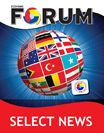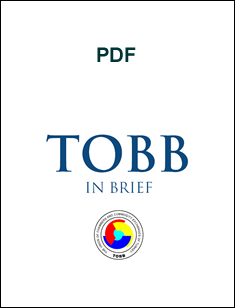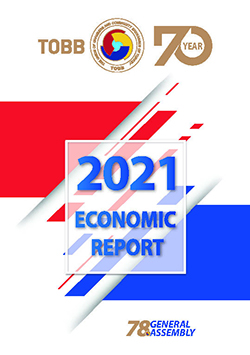Visa and quota call from Hisarcıklıoğlu

10.10.2024 / Nevşehir
Türkiye-European Union (EU) Joint Consultative Committee (JCC) Co-Chairman and President of the Union of Chambers and Commodity Exchanges of Türkiye (TOBB) M. Rifat Hisarcıklıoğlu said, “There are serious problems in obtaining visas to travel to EU member countries. This problem needs to be solved urgently. In addition, the existing transportation quotas in road transportation delay the delivery of imported and exported goods. It also increases costs. We need to solve the problem of road transportation quotas.”
The 42nd meeting of the two-day Türkiye-EU GCC started in Nevşehir. Speaking at the opening of the meeting hosted by Nevşehir Chamber of Commerce and Industry, Hisarcıklıoğlu stated that the meeting symbolizes the strong partnership between the EU and Türkiye.
Stating that they hope to continue the positive agenda, Hisarcıklıoğlu said: “Today, perhaps, the Türkiye-EU accession process is not actually underway. However, there have been a number of developments recently, including “high-level dialog” meetings, which will create a positive agenda. Thanks to the customs union, economic relations have not slowed down. By 2023, Türkiye has become the EU's 5th largest trading partner. Türkiye's industrial production structure is undergoing a successful integration process with EU value chains. In 2023, the volume of Türkiye-EU trade in goods is €206 billion. Our trade in services is €35 billion. The EU has also become Türkiye's most important source of foreign capital investment. The Customs Union therefore remains the strongest link between Türkiye and the EU, especially for trade in goods.
We all know the need to expand the scope of the Customs Union and improve its functioning. I am also vice-president of Eurochambres and the European business community supports the modernization of the customs union. We must achieve this.”
- Visa barrier to travel
Hisarcıklıoğlu emphasized that the representatives and members of the trade union confederations of workers and civil servants, employers, tradesmen, agriculture, women's organizations, which constitute the Turkish side of the Joint Consultative Committee, have visa problems and said, “All of the institutions represented in the committee have serious problems in obtaining visas to travel to EU member countries. This situation has started to affect the development of our social and economic relations in an extremely negative way. The problem needs to be solved urgently.”
- Transport quotas are insufficient
Hisarcıklıoğlu also complained about the inadequacy of transportation quotas and said, “Road transportation in trade between Türkiye and the EU provides a serious logistical advantage for fast delivery of goods. However, the existing transportation quotas delay the delivery of imported and exported goods. It also increases costs. We need to solve the problem of road transportation quotas.”
- Türkiye's geographical role
Veselin Mitov, Member of the European Economic and Social Committee and Co-Chair of the Türkiye-EU Joint Consultative Committee, said that Türkiye plays an important role due to its geographical location in the middle of two major conflicts in the north and south. Commenting on the European Parliament elections, Mitov said, “The European Parliament has become more fragmented after the new elections. Nevertheless, the approach supporting the European Union integration process continues. The future focus of the EU-Türkiye Joint Consultative Committee (JCC) will be on migration, social policies, entrepreneurship, artificial intelligence, digital competence and agriculture. The European Union has not enlarged since Croatia's accession in 2013. The accession process of 8 countries, including Türkiye, the western Balkan countries and Ukraine, is ongoing.
Dimitris Dimitriadis, Head of External Relations Department of the European Economic and Social Committee, and Bülent Özcan, Director General for Financial Cooperation and Project Implementation of the Ministry of Foreign Affairs Directorate for EU Affairs, also delivered speeches at the meeting. Head of the EU Delegation to Türkiye Ambassador Thomas Hans Ossowski also attended the meeting.
Hisarcıklıoğlu also met with KAGIDER President Esra Bezircioğlu, KAGIDER Vice President Şila Gök and KAGIDER EU Representative Ayşe Yürekli after the Türkiye - EU Joint Consultative Committee meeting and exchanged ideas on the development of women entrepreneurship.
Your message has been sent
Thank you |




